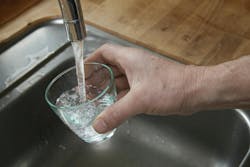Saltwater Infiltrates Louisiana Parish's Drinking Water
The drinking water of Plaquemines Parish, a Louisiana community south of New Orleans, has been compromised due to water levels in the Mississippi River decreasing to record lows.
According to CNN, about 3,000 residents in the community have been cautioned that saltwater permeated their drinking water supply, which can pose a threat to residents with health risks.
The parish is not under a boil water advisory, but health officials have warned residents with high blood pressure or heart health issues to not drink the water. For those without health issues, the water is safe, and it is safe for bathing, Plaquemines Parish President Kirk Lepine told CNN in a phone interview.
This situation occurs when saltwater moves into fresh water and is linked to water from the "nearby Gulf of Mexico pouring into the region’s water system as severe drought caused water levels of the Mississippi River to plunge, slowing its flow and making it harder keep saltwater out," the CNN article said.
An advisory was originally posted on September 28, in which officials said the Boothville water system "was “experiencing higher levels of sodium and chloride from a salt water wedge that is moving up the Mississippi River.”
According to CNN, the sodium levels detected in the drinking water ranged from 60 mg/L to 200 mg/L. The U.S. Environmental Protection Agency recommends that sodium levels do not exceed 20 mg/L for people on a low sodium diet.
In October, the Mississippi River was at historically low levels from Illinois to Louisiana. According to data from the National Weather Service and CNN, the river declined to minus 10.75 near Memphis last month, making it the lowest level recorded in the city.
